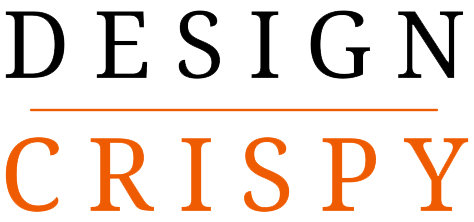For many people, a visit to the dentist can be a source of anxiety and fear. Dental anxiety is a common issue that can prevent individuals from receiving the necessary oral care and lead to deteriorating dental health. However, it is possible to overcome this fear and have a positive dental experience. If you’re seeking quality dental care that doesn’t break the bank, Affordable Dentistry in The Basin offers budget-friendly services without compromising on the high standards of oral health treatments. In this comprehensive guide, we will explore effective strategies and techniques to help you overcome your fear of the dentist. By following these steps, you can say goodbye to dental anxiety and prioritize your oral health.
Understanding Dental Anxiety
Dental anxiety is a feeling of fear or unease that arises when faced with dental procedures or visiting the dentist. This fear can stem from various factors, including:
1. Past Negative Experiences
Previous painful or uncomfortable dental experiences can contribute to dental anxiety. Memories of pain, discomfort, or perceived mistreatment can create a lasting fear response.
2. Fear of Loss of Control
Sitting in the dentist’s chair can make individuals feel vulnerable and out of control. The fear of not being able to communicate or interrupt the procedure can intensify anxiety.
3. Fear of Pain
The fear of experiencing pain during dental treatments is a common concern. This fear can be triggered by anticipated discomfort or injections.
4. Embarrassment or Self-Consciousness
Feeling embarrassed or self-conscious about the condition of your teeth or the state of your oral hygiene can contribute to dental anxiety. The fear of being judged by the dentist or dental staff can be daunting.
5. Fear of Needles or Instruments
Many individuals have phobias related to needles or dental instruments. The sight or sound of these tools can evoke a strong fear response.
Overcoming Dental Anxiety
While dental anxiety can be challenging, there are various strategies that can help you overcome your fear and make your dental visits more manageable. By implementing the following techniques, you can take control of your dental anxiety:
1. Communication and Trust
Openly communicate your fears and concerns with your dentist. Establishing trust and understanding with your dental professional can create a safe and supportive environment.
2. Gradual Exposure
Start by scheduling appointments for non-invasive procedures, such as dental cleanings or examinations. Gradually exposing yourself to dental visits can help desensitize your anxiety over time.
3. Relaxation Techniques
Practice relaxation techniques, such as deep breathing exercises, meditation, or listening to calming music, before and during your dental appointments. These techniques can help reduce anxiety and promote a sense of calm.
4. Distraction Methods
Engage in distraction methods during dental procedures to shift your focus away from anxiety-inducing stimuli. Bring headphones and listen to music, podcasts, or audiobooks to divert your attention.
5. Positive Visualization
Visualize positive outcomes and successful dental visits. Imagine yourself feeling relaxed and comfortable in the dentist’s chair. Positive visualization can help reframe your mindset and reduce anxiety.
6. Sedation Options
Discuss sedation options with your dentist, especially for more invasive procedures. Sedation dentistry can help you relax or even sleep through the treatment, minimizing discomfort and anxiety.
7. Support System
Bring a trusted friend or family member to accompany you during dental appointments. Having a supportive presence can provide comfort and reassurance.
8. Seeking Professional Help
If your dental anxiety persists despite your efforts, consider seeking professional help from a therapist or counselor who specializes in anxiety disorders. They can provide specific techniques and strategies to address your fear of the dentist.
Building a Positive Dental Routine
In addition to overcoming your dental anxiety, it is crucial to establish a positive dental routine to maintain your oral health. Follow these essential steps to care for your teeth and gums:
1. Brushing and Flossing
Brush your teeth at least twice a day using a soft-bristled toothbrush and fluoride toothpaste. Don’t forget to floss daily to remove plaque and debris from between your teeth.
2. Regular Dental Check-ups
Schedule regular dental check-ups every six months. Routine examinations and cleanings can help detect and prevent dental issues before they become more serious.
3. Oral Hygiene Products
Choose oral hygiene products that suit your needs, such as toothpaste formulated for sensitive teeth or an electric toothbrush for more effective cleaning.
4. Healthy Diet
Maintain a balanced diet rich in fruits, vegetables, lean proteins, and whole grains. Limit sugary and acidic foods and beverages, as they can contribute to tooth decay.
5. Limit Tobacco and Alcohol Use
Tobacco and alcohol consumption can negatively impact your oral health. Reduce or eliminate these habits to improve your overall dental well-being.
6. Stay Informed
Stay updated on proper oral care techniques and dental health practices. Regularly consult reputable sources or ask your dentist for guidance on the best practices for your dental hygiene.
Conclusion
Dental anxiety should not prevent you from receiving the dental care you need and deserve. By understanding the root causes of your fear and implementing effective strategies to overcome it, you can transform your dental experiences into positive ones. Remember to communicate with your dentist, practice relaxation techniques, and seek professional help if necessary. Taking charge of your dental anxiety will not only improve your oral health but also enhance your overall well-being.

